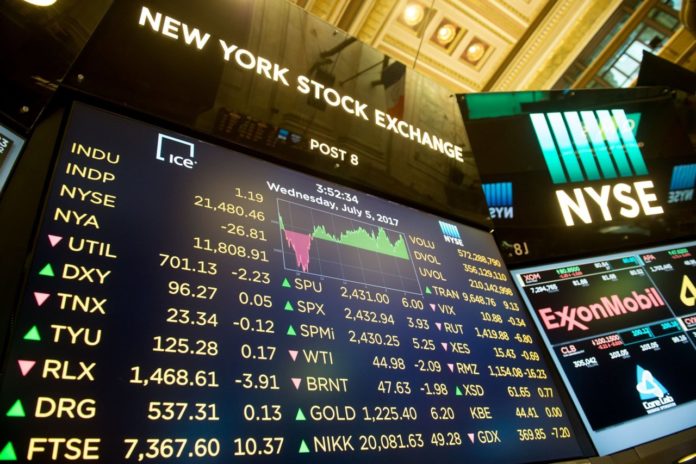Too many believe they’re not wealthy because they don’t have enough money to open an account in a hedge fund.
You’re better off owning your own portfolio of high-quality stocks and holding them for decades.
Or even in owning shares in ordinary mutual funds.
Unless you find a true star – or psychic – of a fund manager, you’re just as vulnerable to the hedge fund manager’s blind spots and weaknesses as you are to a mutual fund manager’s mistakes.
How Are Hedge Funds Different from Mutual Funds?
Unlike a mutual fund, your money is tied up for a year – and the hedge fund manager takes much more of it than mutual funds are allowed to.
We mistake complexity for sophistication. Hedge funds can invest in many ways mutual funds are not allowed to, including going short.
But that just means the manager must mentally juggle far more choices, to determine how to use the fund’s limited cash to achieve a high return on investment.
In more innocent days, we idolized the stock-picking ability of mutual fund managers such as Peter Lynch. He filled his days with reading annual reports and searching for the best companies to buy – and achieved record-breaking returns.
Hedge fund managers can sell French stocks short while backing Bitcoin, and then sell gold options in London while buying uranium junior miners in Australia.
What is a Hedge Fund?
It’s a pool of money that can be invested in ways the individual investors could not do on their own.
Hedge funds can do many things with your money ordinary people would find challenging or impossible, such as buying individual company stocks in Argentina or owning an interest in a private chocolate plantation in Africa or a seaside resort in Italy.
Mutual funds are governed by many more securities regulations. A mutual fund manager can sell stocks if they believe the market is soon going to crash, but they can’t short the market or any particular company.
Because they’re not as regulated as mutual funds, hedge funds cannot accept money from ordinary investors.
Mutual fund managers do make a lot of money, depending on their performance and how big the fund is.
But hedge funds charge even more money. Hedge fund managers make 2% on the total assets they manage – regardless of performance.
Plus, they get 20% of the profits they make.
That means the best traders want to manage hedge funds because they can make billions.
When a trade fails, the client loses 100%. When a trade succeeds, the client gets only 80% of the profits.
Also, hedge funds are illiquid. They will not allow you to withdraw your money for a lockup period of at least one year. Then you can withdraw your money only at specified periods, such as every quarter.
This gives the hedge fund manager more flexibility because they can depend on your cash being there, but it means that if you’re not happy with their performance, you’re stuck.
Hedge funds typically tell you to invest a minimum of $500,000 to $1,000,00 – and some require a lot more than that.
Finally, hedge funds are not transparent. Understandably, managers want to keep their investment strategies and tactics secret from their competition.
But that also means hedge fund investors don’t know where their money is.
The First Hedge Fund
In 1949, Alfred Winslow Jones created the hedge fund structure because he believed the ability to go short as well as long would improve profitability.
He wanted to hedge his stock positions so he wouldn’t lose much money if he was wrong.
The goal was to make a profit whether the stock market was going up or down.
Hedge funds have become increasingly popular, with everybody on Wall Street wanting to start one.
By 2017, there were 15,000 different hedge funds.
Hedge Funds can Use Leverage
“Leverage” means borrowing money to make investments.
It’s a double-edged sword. When you’re right on a trade, leverage magnifies your profits.
When you’re wrong, though, it magnifies your losses.
In 1998, the hedge fund Long Term Capital Management borrowed $100 for every $1, planning to make a killing on a complex trade.
The trade went against them so badly, the Federal Reserve had to step in to prevent a financial market meltdown that would have devastated the national economy.
Yet, LTCM was run by the “dream team.” It was started by two of the economists who WROTE the standard equation for valuing options. They weren’t just experts, they wrote the equation. And won the Nobel Prize in Economics for it.
Plus, Saloman Brother’s top bond trader, John Merriweather, ran the fund.
And more PhDs than you could shake a stick at worked there.
Any time you hear a hedge fund manager brag about their record, remember that two Nobel Prize winners and the founders of options trading almost destroyed the financial markets.
Buffett’s Bet
In 2008, Warren Buffett bet $1 million that a simple S&P 500 index fund would outperform a sample portfolio of hedge funds over the next ten years.
He won that bet.
Complicated, secretive strategies . . . a 2% annual management fee . . . a 20% incentive fee . . . and restrictive withdrawal policies could not beat a simple S&P index fund.
And you don’t need $500,000 to open your account.








